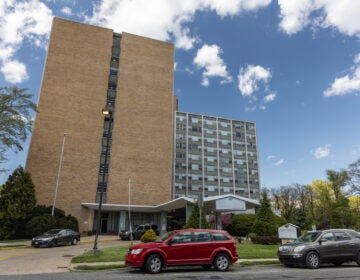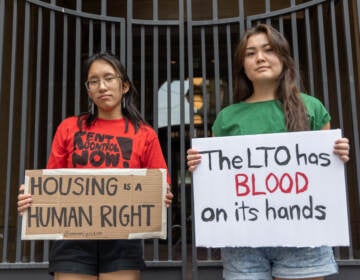New research paints frustrating portrait of housing voucher program
A new national study calls the country’s housing choice voucher program — formerly known as Section 8 — 'daunting' for low-income residents hoping to leave poverty behind.
Listen 2:30
In Philadelphia, the poorest big city in the country, nearly 67 percent of the landlords surveyed by researchers said they did not accept the vouchers. (Urban Institute/Department of Housing and Urban Development)
A new national study calls the country’s housing choice voucher program — formerly known as Section 8 — “daunting” for low-income residents hoping to leave poverty behind.
The reason: Not enough landlords with eligible apartments, especially in low-poverty neighborhoods, are accepting those vouchers.
“These are landlords who have apartments listed for rent, and they meet the rental cap for the program, so the voucher is worth the rent that the landlord is looking for,” said Mary Cunningham, a senior fellow with the Urban Institute, which conducted the study.
Offered through the U.S. Department of Housing and Urban Development, the program provides rent subsidies to families with the goal of getting them into neighborhoods with more economic opportunity.
Typically, rent is set at 30 percent of the renter’s monthly income with the federal government covering the rest. In some cases, HUD lays out the full amount.
Researchers compiled data for five cities: Fort Worth; Los Angeles; Philadelphia; Newark, N.J.; and Washington, D.C.
Larger cities tended to have higher denial rates. The smaller cities tended to have lower denial rates.
In Philadelphia, the poorest big city in the country, nearly 67 percent of the landlords surveyed by researchers said they did not accept the vouchers.
In Los Angeles and Fort Worth, that figure was closer to 80 percent.
In Newark, 31 percent of the landlords surveyed by researchers said they did not accept vouchers. In D.C., it was roughly half that.
Across the board, denial rates increased in neighborhoods where fewer people live in poverty, which advocates say makes it harder for people in the program to change their lives for the better.
“Housing choice vouchers are sort of a veil to be able to say, ‘I don’t want you in my neighborhood for other reasons,’ ” said Emily Auerbach, a member of the Philadelphia Tenants Union, a grassroots organization.
The HUD-sponsored study does not dive into why landlords would not rent to people with housing choice vouchers.
Jim Sims, a retired Philadelphia landlord, has a hunch. He said renting to someone with a housing choice voucher can be a real headache — not because the people are bad tenants, but because it takes so long to get them into a unit.
“The whole process can take anywhere from two and a half to let’s say three and a half months without receiving any rent — just to get a [Philadelphia Housing Authority] tenant,” said Sims, a board member with the Homeowners Association of Philadelphia.
Before someone with a voucher can move in, PHA has to inspect the place and determine the rent, which can spark a lengthy debate with the landlord. Setting up a time to sign the lease also prolongs the process.
Sims always accepted vouchers anyway because he knew what it was like to struggle with housing. When he was 10, the bank seized his childhood home after his dad was injured on the job, and his family couldn’t pay the mortgage.
“For a while we lived with relatives. The family had to split up,” said Sims.
To encourage more landlords in low-poverty neighborhoods to accept vouchers, the report suggests that cities consider giving them signing bonuses and other financial incentives, such as paying for security deposits or waiving fees.
In April, after a successful pilot, PHA launched a new program aimed at helping voucher-holders move to neighborhoods with more socioeconomic diversity, higher quality schools, and better access to transportation. The new initiative gives the authority the flexibility to set the value of vouchers based on average market rents in specific ZIP codes, rather than across the region. Before, that used to lock out those with vouchers from neighborhoods with higher rents.
WHYY is your source for fact-based, in-depth journalism and information. As a nonprofit organization, we rely on financial support from readers like you. Please give today.





